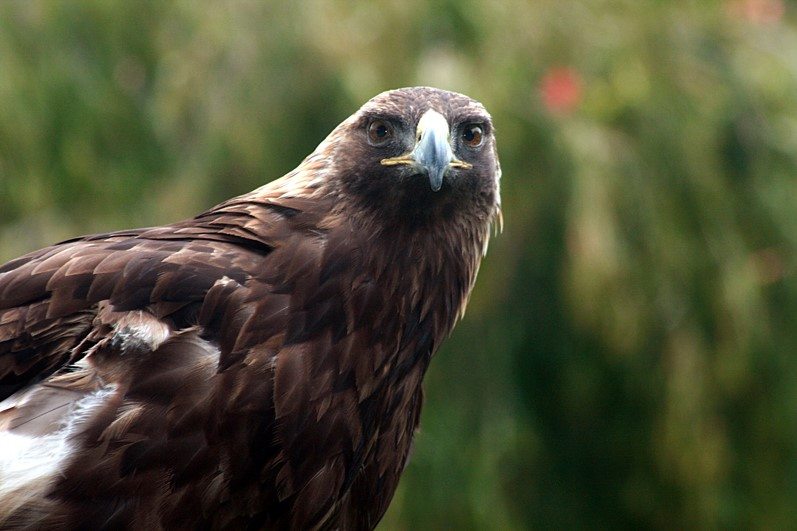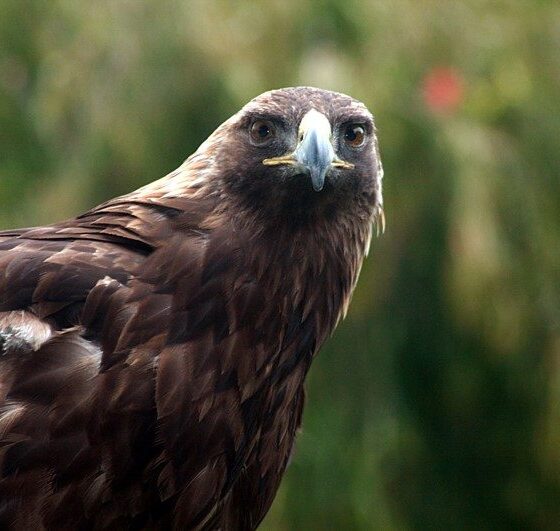

Economy
RSPB Scotland: 779 Protected Birds Of Prey Illegally Killed 1994 to 2014
RSPB Scotland has published a detailed 20 year review of the illegal killing of birds of prey in Scotland, which confirms that 779 protected raptors were illegally killed between 1994 and 2014. In total, 468 birds of prey were poisoned. 173 were shot and 76 were caught in illegal traps. There were also seven attempted shootings. The figures include 104 red kites, 37 golden eagles (pictured), 30 hen harriers, 16 goshawks and 10 white-tailed eagles.
(Join RSPB Scotland/Gift RSPB Membership here)
RSPB Scotland’s specialist Investigations team has been meticulously documenting the illegal killing of birds of prey in Scotland for 20 years to provide a thorough public record of the scale, location and methods of wildlife crime. This effort, supported by an extensive body of peer reviewed science, has shown the severe impact of criminal activities on some of Scotland’s most iconic and vulnerable bird species.
The report deals only with incidents that have been confirmed as involving criminal activity, either by post mortem at a government laboratory or by reliable witnesses. The number of birds actually killed will therefore be much higher.
In a further 171 incidents, poison baits and/or non-bird of prey victims of poisoning were found, including 14 domestic cats and 14 dogs. There were also an additional 134 incidents where, although no victim was recovered, clear attempts had been made to target raptors – through the use of illegal traps for example.
RSPB Scotland’s review shows that over the past 20 years a significant majority of cases take place in areas associated with game-bird shooting, and in particular within upland areas managed intensively for driven grouse shooting. It is also noted however, that in recent years there have been some significant and welcome reductions in the number of cases reported from lowland areas of Scotland.
Director of RSPB Scotland, Stuart Housden, said: “We recognise that many landowners and their staff have helped with positive conservation efforts for birds of prey, particularly with reintroduction programmes for white–tailed eagles and red kites, and that the majority operate legitimate shooting businesses; but there are still far too many who do not act responsibly, and there will be no improvement in the conservation status of raptors until all land management is carried out wholly within the law.”
Minister for Environment, Climate Change and Land Reform, Dr Aileen McLeod said: “I welcome this extensive review of the data that RSPB have collated over a 20 year period. There is no doubt that the figures in this report make for uncomfortable reading, but we have made progress in recent years with the new vicarious liability provisions, the publication of the report from the Wildlife Crime Penalties Review Group, new measures implementing restrictions on the use of General Licences and earlier this year the Scottish Government funded pesticide disposal scheme that removed over 700kg of illegally held poisons in Scotland.
“RSPB are a key partner in the Partnership for Action Against Wildlife Crime (PAW) Scotland and they have worked with us to support the fight against wildlife crime for many years. I am pleased also that RSPB recognise the efforts made by Police Scotland and the Crown Office in dealing with this difficult area of crime, which is often very complex to investigate.
“I have noted that the RSPB are calling for the Scottish Government funded review into game licensing in other countries to be commenced and I can confirm that tenders to carry out this important research were invited on 11 December.”
There is now well documented scientific evidence of the impact of illegal human killing on Scotland’s golden eagle, hen harrier, peregrine, and reintroduced red kite populations. The last national hen harrier survey for example showed the population had declined by 22% in Scotland between 2004 and 2010. The Joint Nature Conservation Committee Hen Harrier Framework 2011 concluded that illegal killing was having a significant impact on this species, particularly on land managed for driven grouse shooting in the southern uplands and eastern Highlands.
The report on illegal killing by RSPB Scotland has provided reliable data to inform Scottish Government conservation efforts for the country’s internationally important populations of birds of prey, and also re-affirms the need for continued vigilance; good wildlife protection laws; effective enforcement powers for the police; and strong sanctions in the courts to act as an effective deterrent.
Stuart Housden continued: “We welcome measures taken by the Scottish Government over the past 20 years to improve the laws protecting our birds of prey, and the recent improvements by Police Scotland and the Crown Office in tackling wildlife crime. However, our data shows that illegal killing of raptors continues to be a widespread problem in significant parts of upland Scotland. These crimes impact the natural wealth of Scotland and undermine our international reputation, wildlife tourism and diversified rural businesses.
“Scotland’s shooting industry, in contrast to the rest of Europe, has ‘light touch’ regulation and little public accountability. Self policing has been given more than a fair chance and numerous public warnings, from ministers aimed at upland sporting managers, have not been heeded. It is long overdue that sporting management should be licensed, conditional on compliance with wildlife protection laws. We encourage the Scottish Government to initiate the planned review of game-bird licensing systems in other similar countries as soon as possible so we can learn and adopt best practice to ensure a sustainable future for sports shooting.”
Image credit: Golden Eagle by Brocken Inaglory via Wikipedia


 Environment12 months ago
Environment12 months agoAre Polymer Banknotes: an Eco-Friendly Trend or a Groundswell?

 Features11 months ago
Features11 months agoEco-Friendly Cryptocurrencies: Sustainable Investment Choices

 Features12 months ago
Features12 months agoEco-Friendly Crypto Traders Must Find the Right Exchange

 Energy11 months ago
Energy11 months agoThe Growing Role of Solar Panels in Ireland’s Energy Future




















